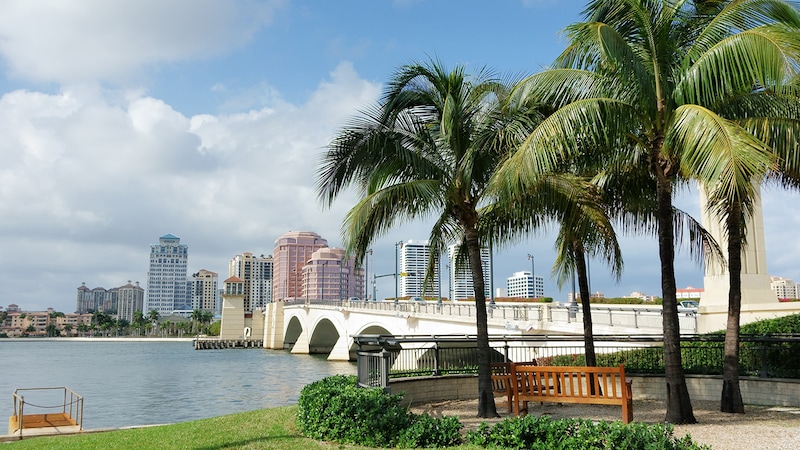How to Plan a Cruise Vacation

Soon after you start, you'll likely find that the excitement of planning a cruise propels you through the voyage of careful research. Cruises are a unique type of vacation because of the places they can reach and the wonders that hospitable sea travel can offer.
A beginner's guide to cruise planning
We'll outline each step you need to take so that your cruise is a vacation to treasure. Along the way, you'll have to consider your options and make choices. We've kept the number of steps to a minimum so that you can refer back to them. There are many options, and it makes complete sense if you need time to reflect on them.
1. Determine your budget
A cruise ticket typically covers lodging for the duration of your trip. Your fare may also include food, entertainment, plus certain onboard amenities and activities, such as access to a pool and spa. Be sure to check the details up front and find out exactly what you're paying for, so there's no chance of buyer's remorse.
Usually, several parts of a cruise are not included with your ticket, and they can all cost money at the time of booking or when you're already aboard:
- Travel to and from the cruise port
- Gratuities
- Alcoholic beverages
- Specialty dining
- Spa services
- Shore excursions
- Onboard entertainment
- Activities or shopping when ashore in ports of call
Therefore, determine your total budget at the outset of planning a cruise. It might be helpful to set a certain amount for spending rather than calculate the cost of everything you plan to do. As you follow the next steps, your decision-making will benefit from having your total budget on hand.
2. Select a cruise destination
Selecting a destination is an important step for many reasons. In fact, the destination might be the very inspiration for your trip. You might be looking to party with friends on the open seas or are you looking to broaden your horizons within a new environment. Maybe your need to relax has been growing uncontrollably. Overall, the destination you choose plays a big role in shaping the experience you'll have at sea.
Different types of ships from major cruise lines sail all around the world. That includes regions you might not expect, such as European coasts, the Mediterranean and Scandinavia. Some cruise destinations tend to be seasonal, however, like Canada, Alaska and much of Europe.
After you choose a destination, confirm travel requirements at all the ports the cruise will use. You could do this closer to your departure, but requirements like passports and vaccinations may be best handled well in advance of your trip.
3. Plan your itinerary
It's better to start planning your itinerary before you actually book a cruise because your preferences help most in narrowing your search. For instance, do you definitely want to take many excursions on land? Perhaps you're traveling with the whole family and want plenty of onboard activities for children to enjoy.
Here are some of the types of cruise you could plan:
- Ocean: You'll be hard-pressed to find an ocean cruise that doesn't take place on a massive ship with thousands of passengers. The programs, amenities and activities are usually expansive.
- River: Normally, a river cruise happens on a small or mid-size ship, and your route will be very scenic. This type also tends to have few passengers and amenities, but all those amenities—including food and drink—might be included in your fare.
- Adventure: When travel and unique excursions top your list of priorities, adventure cruises may be the best choice. They aim to give you rich experiences in all the destinations on your route, as opposed to the weeklong party environment of an ocean cruise.
- Family: Some ships are stocked with areas and activities tailored to children and fun for the whole family. Most cruises are great for kids of all ages.
To pick a cruise, you'll want to review all of its amenities and offerings .You can always refine your itinerary after you choose your cruise line. Knowing exactly what you want to do will make your research and, eventually, booking the cruise much simpler.
4. Pick a cruise line and ship
The number of options at your fingertips can be overwhelming, and the cruise line you choose may be your most important choice. Most sail to a wide variety of destinations and have a fleet of ships available to guests. One week is the most common length, but the size of the ship can vary wildly. For example, ocean cruises tend to fit thousands of people, while river cruises don't usually fit more than 25.
To recap, by this stage you should have considered your budget destination and itinerary. This can help you search cruise companies and locate which ones seem to best fit your goals.
As you search, here are some questions to ask yourself:
Are you traveling with family?
Many cruise lines have families in mind when designing ships and itineraries. That includes multi-generational groups, not just families with small children. It will be easy to find family-friendly cruises in your research, but determining if this is your preference can help narrow your search results.
Is this a couple's getaway?
The main way this may affect your choice of cruise is by eliminating cruises that allow children onboard. Maybe that won't bother you, but chances are, you'll find more romance on a cruise that's exclusive to adults.
Do you want an all-inclusive experience?
We talked a bit about budget, and it's worthwhile if you're considering an all-inclusive experience. In general, this means all of your food and drinks are included in your cruise fare. All-inclusive may also extend to other amenities and activities your ship has available. This package has a premium cost, but it's one that can greatly enhance your entire time aboard a cruise.
5. Choose any additional packages
We've explained how your cruise can cost more than just the price of admission. Cruise lines aren't usually bent on charging you for everything, but some amenities cost money once you're onboard. Many cruises offer packages that include the amenities and activities you're probably interested in, such as excursions, special dinners and drink packages.
A cruise package might be an add-on to your fare, or it might be included in the itinerary you choose when booking. Discounts may be available at this point, but you might also be able to sign up as you book and receive offers prior to your cruise.
Review the packages and any special deals that are available as you complete your booking. Another chance to bundle the price of common pay-as-you-go cruise expenses won't be guaranteed. This is also a good time to book any add-on, amenity, such as a massage or land excursion.
6. Book your air travel (if needed)
This may seem like common sense if you live in Wisconsin and depart from Florida. However, we have one significant piece of advice: Plan to fly one day early. Common problems with flights can happen—delays, cancellations, missed connections—and a cruise ship will depart without you. Flying early may not seem necessary, but it can be an invaluable precaution in unforeseen situations.
As with most vacation plans, flight prices tend to increase as the trip dates grow nearer. You may save money by booking air travel in advance, around the same time you book your cruise.
7. What to bring on a cruise
With all the planning out of the way, you'll eventually have to pack to make your trip more enjoyable. All the essentials you pack when traveling will also be useful on a cruise, but space may be limited in your cabin. That doesn't necessarily mean pack light, but your items may go in and out of your baggage more often.
Other essential items to bring include your travel and identification documents. Usually, a passport will cover all the bases, but check the cruise line's advice and local requirements for any port you might board and de-board the ship.
In addition, consider how you're going to spend each day of your cruise, and check the weather. You may be comfortable wearing less clothing in warm-weather destinations. Or, if you're going on an adventure cruise, you may need specific attire for variant weather and specific footwear for your land excursions.
One more thing: Some surge-protectors, steamers and clothes irons are not allowed on every cruise ship. For lists and information about allowable items, contact your cruise line's customer service or check its website.
How far in advance should you plan a cruise?
In general, you should begin planning for your cruise as early as possible. This helps with both pricing and cabin availability. Cabins in the middle of ships tend to book the earliest because the cabins at the ends of the ship may affect guests prone to seasickness. Booking between 6 and 12 months before a cruise may yield the best results in price and quality. However, last-minute bookings might be favorable, too. Exactly when you'll secure the best deal on a cruise can depend heavily on various sales and promotions, the trends of which are difficult to predict.
How much does an average cruise ship trip cost?
The cost of cruises can vary greatly based on several factors, but the total cost can range from hundreds to thousands of dollars. For the accommodations, expect a minimum of $100 per day. Cruise tickets themselves, which include your cabin at the very least, are about the same as hotel rates. But like hotels, the size, quality, availability and amenities contribute most to the daily rate you pay for a cruise.
Here are several other costs to expect:
- Port taxes: These are not included in cruise fare but will be due before you board. Most port taxes are not more than $200 per person. The more ports your cruise takes you to, however, the higher the fees.
- Personal spending: Some amenities, activities and excursions aren't included in the cruise fare or packages you pay for when booking. Depending on your interest level, this cost can range widely. Between all the onboard and off-board options available to you, you might spend at least an additional $100 a day.
- Miscellaneous: Expenses that vary depending on the passenger are difficult to estimate. For example, gratuities, pre/post-cruise transportation and parking. These may or may not apply to the cruise you're taking.
In summary
There you have it: 7 steps and some important considerations to help you plan a cruise. Although it might seem daunting, even if it's not your first time, organizing a cruise is like organizing most vacations. The destination, trip length and desired itinerary are best considered early, before you start research. Of course, you might also need to budget for expenses beyond your cruise fare, but that's true of most vacations, too. If you follow this guide, we're confident you'll have a wonderful time at sea.



